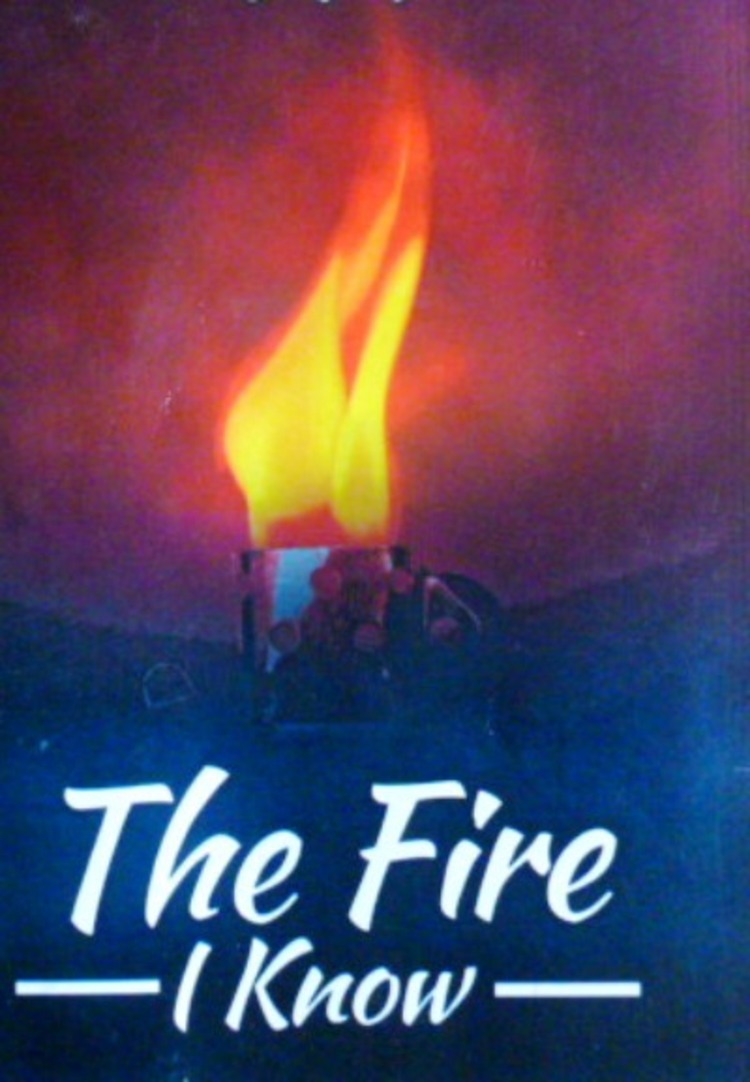Child abuse, neglect in ‘The Fire l Know’

Beaven Tapureta Bookshelf —
Twenty-four-year-old Zimbabwean lawyer, prophet and founder of Prophetic Ministry International Church (PMI) Joshua John Chirambwe, also known as Prophet Advocate Joshua, has published a moving autobiography titled “The Fire I Know” (2016) which chronicles the abuse and emotional neglect he suffered as a child and how he triumphed over it.
“The Fire I Know” is a tale of woe and yet as the tale unfolds, patience and determination are outstanding treasures which Prophet Advocate Joshua (herein called Joshua or Joe) squeezes out of the “rocky” survival in Mutare where he stayed with his grandmother.
With vivid descriptions and a confident narrative voice drawing from a rich pool of words, the story encompasses his childhood and youth. However, it deliberately leaves out his spiritual calling as a Christian prophet.
This work is, indeed, a gripping autobiography “fictionalised” with as much sincerity as would bring tears to your eyes.
It is outstanding in its outlay of scenes, dialogue and narrative drive, distinguishing perhaps the author from fellow Christian motivational leaders who have resorted to poetry and other forms of motivational writing to relay their divine messages.
The novel form makes the autobiography memorable. How much content stand out as fiction and how much as real is a paradox one sets aside, just meanwhile, to drift along with the adult storyteller who has achieved but now is recollecting his childhood which was dipped in abuse and neglect, determination and vision, and unstoppable talent.
“Oliver Twist”, yes; remember “Oliver Twist?” Such is the echoing “silence” one who has read Charles Dickens’ second novel hears as you start to read “The Fire I Know” and then it is confirmed somewhere within the autobiography that actually Joshua at some point in his childhood came across the novel “Oliver Twist” by Charles Dickens and became enamoured by the exact reflection of his life in it! Charles Dickens (1812-1870) was an English writer known for his novels which depicted and criticized social injustice.
Joshua says he deliberately left out details about his church and his calling as a prophet because he had written about that in an earlier unpublished book called “Miracle Book” and also, in this latest one he only wished to focus on the real world he grew up in, the world that shaped him to be the successful lawyer, Christian leader, and writer that he is today.
The power of autobiography or biography, fictionalised or not fictionalised, is that it exposes certain life truths about a person but the sole purpose is sometimes to inspire others one way or the other.
Joshua’s story is a family, national, and international betrayal of every child’s right to empathy.
Joshua’s purpose of “telling it as it is” can be felt throughout the book. The abuse he went through as a boy surely could be happening to someone somewhere within the borders of Zimbabwe or beyond!
His narration begins in the present life. He is now a distinguished lawyer, meeting someone special at a special place for a special reason!
He is satisfied with what he has achieved so far. “If there ever was a fire in my life, it was not there now,” he meditates . . . What is the fire that was in Joshua’s life that was now gone? A long flashback takes you to the source.
Grandmother Mudavanhu is a diabetic widow but also a tough woman, not only to Joshua but to her own children, including Joshua’s mother Ominda.
“And because of my mother’s irresponsible tendencies, my grandmother took me and I lived with her from then on,” says Joshua. Normally, in African and other cultures, childhood spent with grandmother must be an interesting time. For Joshua the boy, living with her grandmother was uphill.
On the other hand, in the story, his mother Ominda totally neglects him although later as the story comes to an end she seems reformed. Joshua becomes the centre of victimisation in the Mudavanhu family. He longs for his paternal relatives but finds none.
At some point he lives with his mother Ominda in Rusape but the maid in her house does not feed Joshua and he suffers from kwashiorkor. At grandmother’s house in Mutare, he is a slave.
He does all the house work and he is always punished for slight mistakes, punished for the irresponsibility of his mother and others!
When Joshua graduates from his pre-school, grandmother does not come to the graduation party at the school even though she has promised she will come to pick him up. It rains and he has to walk home alone, his certificate drenched.
It is amazing how the narrator shows a craving for beauty in the midst of ugliness for instance, the poetry of the Mudahwa hill behind his grandmother’s house entices his inner wishes.
The coarse absurdity of the abuse which the fatherless boy suffers in the Mudavanhu family is hidden in the fact that almost everyone has dumped him for some reason he is continually grappling to find.
He becomes a natural philosopher of life, his young mind analysing every detail of his life each minute and hour while kids of his age enjoy the pleasures of childhood.
At six, Joshua becomes suicidal. When he has a dream about eggs (symbolically meaning ‘beginning’) and a dangerous snake chasing him away from the eggs which he has found in the garden, there is no one to tell the dream.
There are rainbows in grandmother’s philosophy of life. While her treatment of Joshua could be called abuse, she seemed to be aware of her actions.
When he starts primary school, she stresses to him the importance of education which becomes Joshua’s ladder leading him upward in life. Was she then preparing him the hardest way?
When one day Munodawafa beats up the boy, grandmother fumes and screams at Munodawafa, “I don’t want to see anyone beating this child. I must do so myself not you!”
However, there are other characters that are humane in the story such as Joshua’s late father, Uncle Albert (grandmother’s step son), and Aunt Rita.
Uncle Albert is loved by grandmother; he is the opposite of her son Nhamo and nearly all her children in terms of being “well-groomed”. Her children include the alcoholic Nhamo (later dies), Monica, Rita (later dies), the irresponsible Ominda, Maneta, Mukowani and the individualist Self.
In the midst of emotional and psychological turmoil, Joshua passes his Grade Seven, passes his Ordinary Level, passes his Advanced Level with flying colours, and goes to university. This is a book that one has to read for him/herself.
It is multi-layered. It is sad, it is uplifting. Although he ends his autobiography with heartbreak when Samantha enters his life, he very well displays wisdom in a way that marks him for greatness.
Joshua holds a Bachelor of Law Honors Degree from the Midlands State University. In 2010, he was Zimbabwe’s finest essay writer in the Black History Month Essay competition sponsored by the United States of America.
His poetry chapbook “Dawn of My Talent” was honoured by the Cassy Shay Press, an independent publisher in USA. It was ranked in the world’s top 161 best books. He has also won first prize in the 2014 MSU Faculty of Law annual disability rights essay contest.








Comments